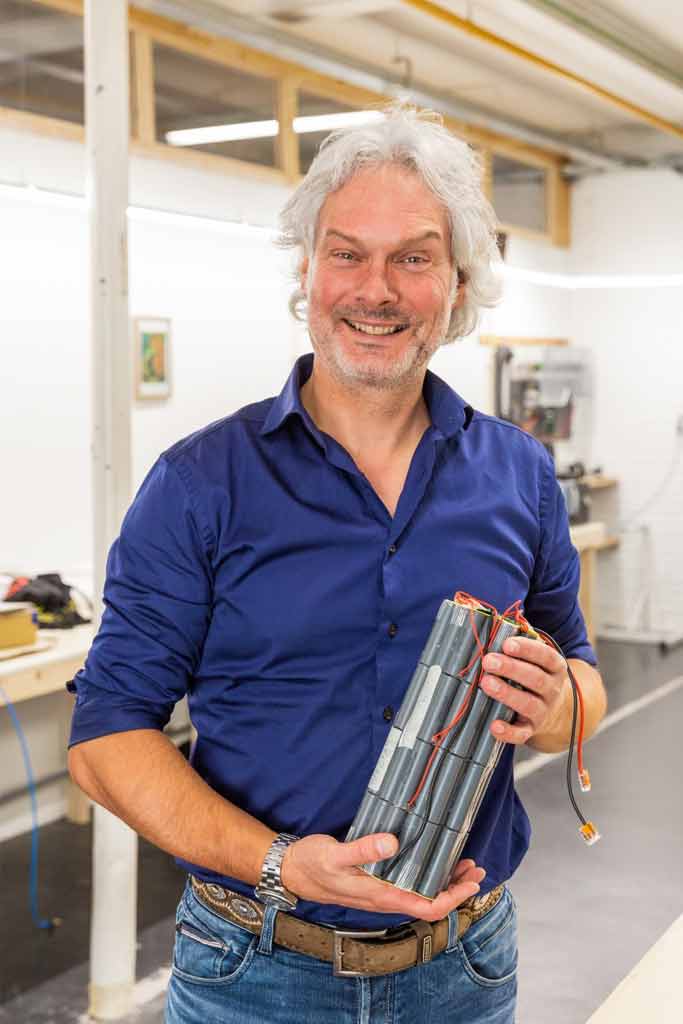
Give your battery a second life!
Repower
Give your battery a second life!
Remco Kanters established Repower after having spent ten years working in the waste collection and recycling industry. He is proud that he set up this thriving business from scratch with his own two hands. He offers a welcoming working environment for people who have trouble finding work, and people with special needs also feel right at home at Repower.
Repower’s webshop, accu4all, sells customised battery packs, but you can also order gel batteries for various applications.
The business’ focus lies on re-using and recycling batteries that operate on rechargeable battery cells. These types of batteries are increasingly being used in applications such as hand-powered tools, torches and dive torches, measuring equipment, emergency lighting, toys, and even electric bikes and scooters. Batteries are also available for industrial applications such as solar-powered lamp posts. The battery cells are connected in series and combined into what we call a battery pack. The advantage of these batteries, as opposed to traditional lead-acid batteries, is their formability and the fact that they’re lightweight.
Generally, the battery pack is the only battery component that is subject to wear and tear. Just by replacing the battery pack, the battery is given a new lease of life. This form of re-use is a great way to reduce costs and preserve the environment by reducing waste and resource use. Repower ensures that the batteries are processed in an environmentally sustainable way.
Repower mainly conducts business with construction firms, building engineering services, technical services and bicycle dealers. Government agencies and institutions for emergency lighting and tool dealers are also among their customers.
In terms of trends, Kanters sees that importers are looking for solutions whereby they purchase batteries from China and assemble them in Europe. The in-house production of battery packs for industrial purposes is becoming increasingly important. Because the transport of the finished product (the batteries) has become much more expensive and is considered more hazardous than transporting individual cells, assembling battery packs and renewing existing batteries will become the standard. The lithium-ion cells primarily used in these batteries are mainly purchased from local suppliers.

